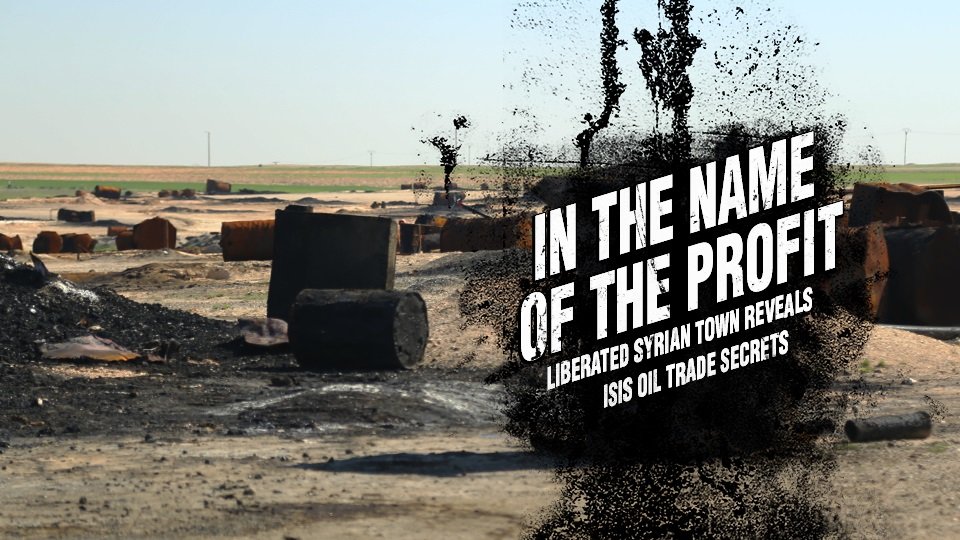Eksklusivt materiale uden fortilfælde, samt vidnesbyrd, blev filmet af RT dokumntar-holdet kun ti dage efter byen Shaddadi i det syriske Kurdistan blev befriet fra den islamiske stats terrorister. Byens omkringliggende område er velkendt for sine store olieforekomster og udledningsaktivitet der i månedsvis blev udnyttet af ISIS ledelsen for generere indtægt.
SE DOKUMENTAREN HER
I sin følgen af kurdiske soldater med rundt omkring i de ødelagte og forladte hjem, fandt RT dokumentaren dokumenter der viste en direkte forbindelse mellem Tyrkiet og ISIS krigere i Syrien. Jihadi-papirerene indeholdt også en hel bunke udenlandske pas med tyrkiske indrejsestempler, og pamfletter der opfordrede til jihad mod den syriske regering, trykket i Tyrkiet.
Kommentar: Artiklen RT Documentary: In the Name of Profit - Daesh's dirty oil secrets, ties with Turkey (VIDEO) er ikke videre oversat til dansk.
But most importantly, among piles of ISIS documents RT journalists discovered heaps of detailed invoices used by the terrorists to calculate and report their daily revenues from illegal smuggling activity.
"Of course, they wouldn't get any weapons from Turkey if they didn't ship them oil," a teenage oil refinery worker told RT. "They...go with the oil and come back with the guns. And so they go, back and forth, back and forth."
In addition, the documentary crew was also able to record exclusive interviews with locals - as well as captured IS recruits - who shed more light into the ISIS oil trade. According to witnesses on the ground, fighters who came from Raqqa and Aleppo to pick up the oil constantly mentioned Turkey as the final destination.
"A lot of money passed through here, because they (IS) pumped plenty of oil. It's safe to say that they were making as much as a million dollars per week. Dealers from Aleppo would come in vehicles, with tanks that could take up to 170-180 barrels. People said they'd take the oil, export it to Turkey and other countries," one local said.
Silav Serkeftin, a commander with the Kurdish Women's Protection Units (YPJ), said that "we can say with certainty that Turkey actively supports IS. We found Turkish walkie-talkies, Turkish phone numbers."
One of the captured ISIS fighters admitted that the terrorist group sells oil to Turkey. Others have admitted that crossing the border into the neighboring country proved to be relatively easy.
"Crossing the Syrian-Turkish border was also very easy. It was like crossing the street," ISIS member from Saudi Arabia, Muhammed Ahmed Muhammed told RT. "A man told me that the Islamic State erased the borders. That there were no borders. I'd heard about that, but I couldn't quite get it until I saw it myself."
Despite the apparent ties between Turkey and IS, the teenage oil refinery worker expressed optimism that Syria would come out ahead.
"Turkey decided to support IS so they could destroy Syria. But Syria will stand up to them," he said.
Ankara has always fiercely denied any involvement in an illegal oil trade with ISIS, and any contacts with the terror group whatsoever. RT has reached out to the Turkish Foreign Ministry for a specific comment on the documentary crew's findings which Ankara has failed to provide thus far.
Besides collecting irrefutable proof of quite cozy relations between ISIS and Turkey, RT managed capture the mood of the populace who have lived and worked under ISIS yoke for months. They shared their untold stories of survival under the jihadists' rule.




Læserkommentarer
dig vores Nyhedsbrev